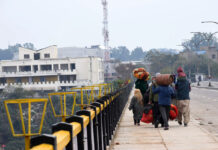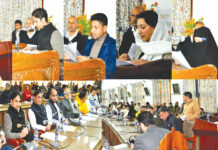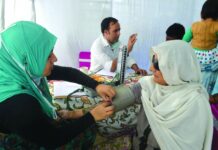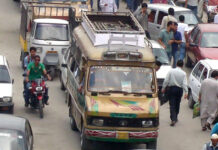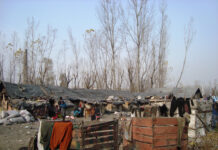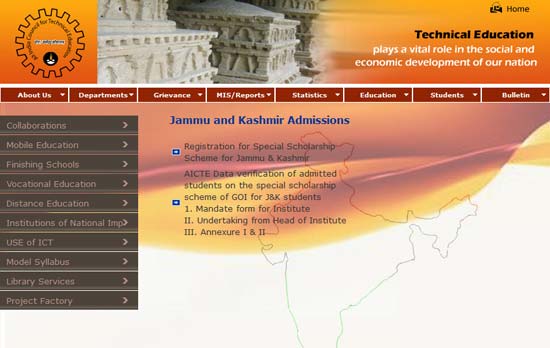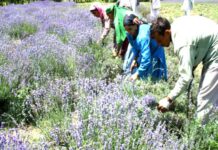The poll boycott call – one of the rare similarities in opinion between the two factions of All Parties Hurriyat Conference – suffered a major setback in 2008 Assembly elections. Notwithstanding the experience, the two separatist factions are again planning to campaign against voting in the six-phase parliament elections, slated to commence in mid-April. Though the election process is yet to take the shape of rallies, both factions of All Parties Hurriyat Conference (APHC) have begun to strategise their moves.
Syed Ali Shah Geelani led hard-line faction of APHC is determined to make the first move. “The nation (Kashmir) is under the illegal occupation of India which renders any sort of election in the area meaningless. We will strongly oppose an exercise that is being projected to legitimise the accession of Kashmir to India,” says Syed Ali Shah Geelani, Chairman All Parties Hurriyat Conference (G).
Cite the assembly election as example of mass participation, Geelani refuses to be bogged down. “As a leader of a nation, small or big, my duty is to direct my nation to the right path when people are confronted with a confusing situation. It is up to the masses to comply or not. If voting for those who tarnish the chastity of Kashmiri women, kill innocent youth and repeatedly add to the plethora of lies regarding Kashmir is genuine, then people are free to vote. If it only strengthens the hands of tyranny to snatch our right to self determination, then Muslims of Kashmir must refrain from polling,” he says, exuberantly quoting verses from holy Quran to substantiate his argument.
Geelani has a strong supporter in Dukhtaran-e-Millat chief Aasiya Andrabi who terms the elections un-Islamic and upholds the boycott call. “We will resist the parliamentary elections tooth and nail as it legitimises the accession to India. It is more dangerous than assembly election which somehow is a local affair pertaining to governance,” says Aasiya.
The moderate faction of APHC holds a very similar opinion. “We ask people not to vote because voter turnout is linked to Kashmir issue which damages our cause,” says Saleem Geelani, moderate APHC’s public relations officer. “When we are not participating in the elections, how can we advice people to vote.”
Saleem Geelani says that APHC’s general body will meet to discuss the strategy for election boycott in a few days. The boycott campaign is likely to kick off after the meeting.
Leaders in the hard-line faction, however, have made their mind to visit every corner of the valley to woo people in their favour. “We will go to our people; educate and convince them not to vote,” says Syed Ali Geelani, though weary of the government’s efforts to stop them from carrying out the campaign. “Occupiers have power at their command and they can scuttle our efforts, so people themselves should act as true Muslims by boycotting elections in case we are imprisoned or house arrested.”
Separatists outside Hurriyat like the Jammu Kashmir Liberation Front are also weighing their options. “We have not decided as yet which course JKLF will take. The party will come out with a detailed course of action after convening a meeting this week,” Yaseen Malik, Chairman JKLF says in a sleepy tone, slightly exhibiting indecisiveness.
Prof. Noor Ahmad Baba of Political Science department, Kashmir University envisages a comparatively low turn-out in parliamentary election. “It is very difficult to predict anything right now but I think boycott call may be slightly effective,” says Baba. He gives two major reasons for his assessment. “There are no direct stakes involved in parliament elections. That means the enthusiasm will be less. Secondly, the new government has come to power just three months back. As no government can perform to the expectations of people in a short span of time, the enthusiasm will further subside which will definitely cut the poll participation. People had lot of hopes during assembly elections. Very little of those have been satiated so far,” opines Prof Baba.
On its part, government is also not sure that the volume of poll participation will be repeated in the parliament elections. Chief Minister Omar Abdullah says that assembly elections were fought on local issues. “Then large number of candidates also led to a good turnout,” Omar told reporters in Srinagar. Regarding the boycott campaign by separatists, he said, “We do understand that attempts would be made to disrupt the polls. Since 1989, has there been an election when they did not call for a boycott? We are monitoring the situation are taking adequate steps to ensure that both the candidates and the voters are safe.”


